For Israel’s 75th Anniversary here are 75 interesting facts about the land.
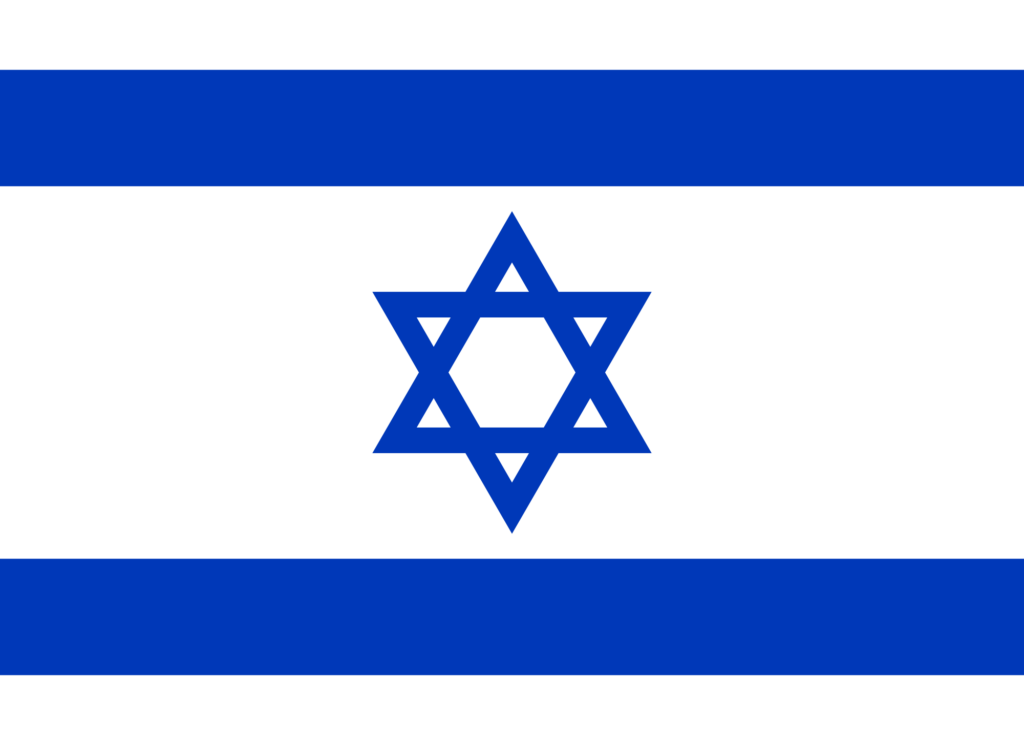
Facts about the Israeli Flag
- The design of Israel's flag is based on the Jewish prayer shawl, or tallit, which has blue and white stripes.
- The flag was adopted on October 28, 1948, shortly after Israel declared its independence.
- The blue color on Israel's flag represents the stripes on the tallit and symbolizes the sky and the sea, while the white color represents purity and innocence.
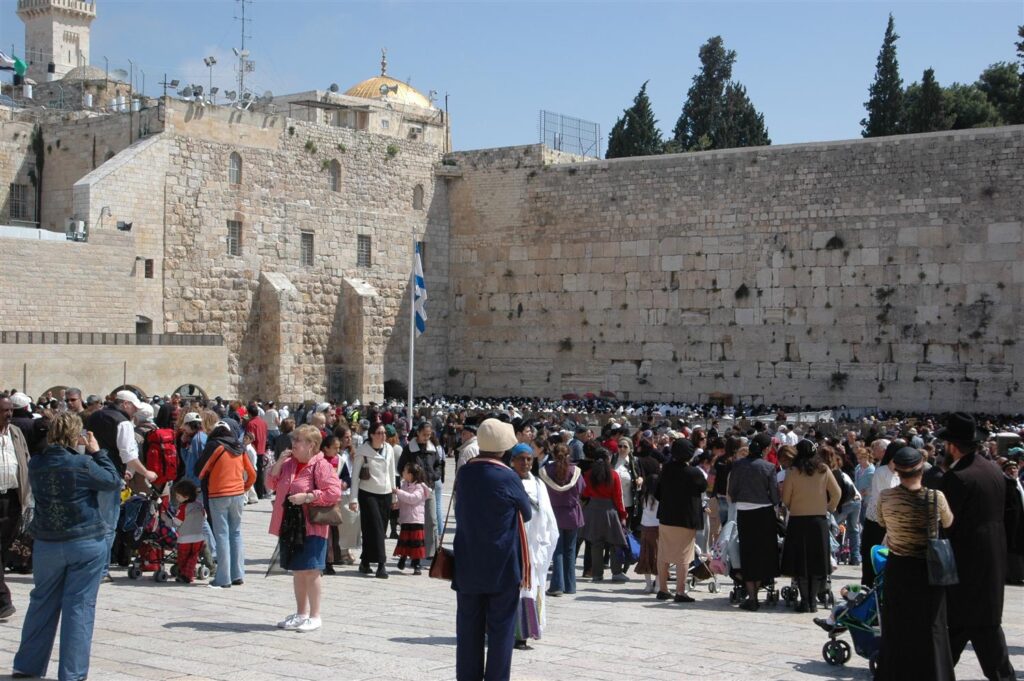
Facts about Jerusalem
- Jerusalem is considered the holiest city in Judaism, and the Western Wall, also known as the Wailing Wall, is one of the most sacred sites for Jews. It is the last remaining remnant of the Second Temple, which was destroyed by the Romans in 70 CE.
- The Temple Mount, where the First and Second Temples stood, is the holiest site in Judaism, but Jews are currently prohibited from praying there due to political and religious tensions.
- According to Jewish tradition, the Temple Mount is the place where God gathered the dust to create the first human being, Adam.
- The Jewish Quarter of the Old City of Jerusalem is home to several synagogues, including the Hurva Synagogue, which was destroyed and rebuilt several times over the centuries.
- The City of David, located outside the Old City walls, is believed to be the original site of Jerusalem and was home to King David's palace. Excavations at the site have uncovered many ancient artifacts and structures.
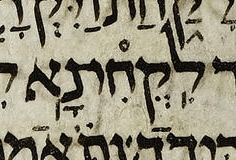
Facts about Hebrew
- Many of the words in Hebrew have roots that can be traced back to the biblical text, making it a language rich in religious and spiritual significance.
- The name "Hebrew" comes from the biblical patriarch Eber, who is mentioned in Genesis 10:21.
- Hebrew has influenced other languages, including English, with words like "Hallelujah," "amen," and "cherub" coming from Hebrew roots.
- "Shalom" - This word means "peace," but it goes beyond just the absence of conflict. In Hebrew, shalom implies completeness, wholeness, and well-being.
- "Tzedakah" - This word means "righteousness" or "justice," and is often used in Jewish and Christian contexts to describe acts of charity or giving to those in need.
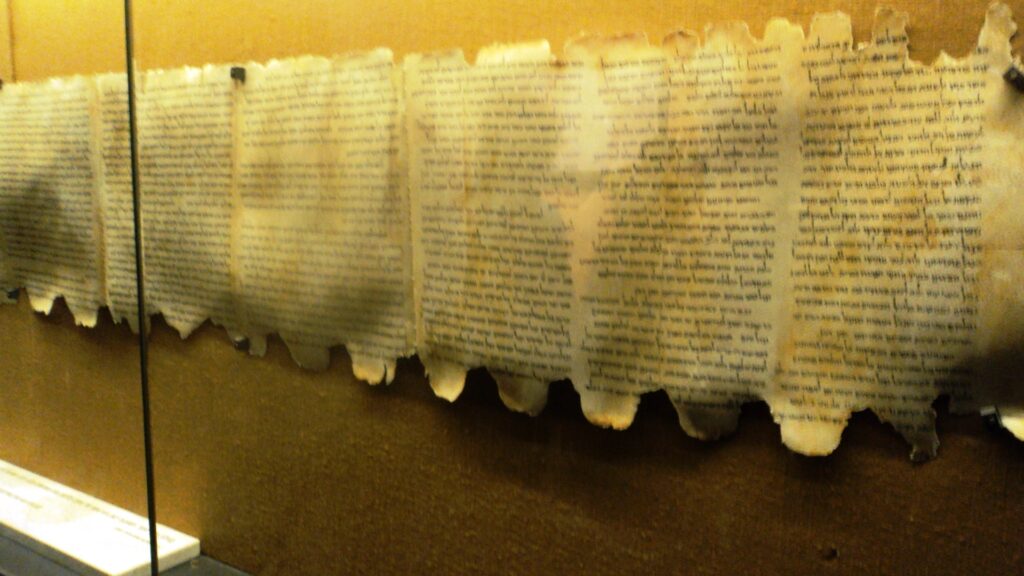
Facts about the Dead Sea Scrolls
- The Dead Sea Scrolls are a collection of Jewish texts that were discovered in caves near the Dead Sea in the late 1940s and early 1950s. They date back to the Second Temple period (around 530 BCE to 70 CE) and include copies of biblical texts, as well as other Jewish writings.
- The Dead Sea Scrolls include a number of texts that were previously unknown to scholars, including hymns, prayers, and apocalyptic literature. These texts provide valuable information about the religious beliefs and practices of the Jewish community that produced them.
- They provide evidence of the historical accuracy of the Bible. The scrolls include copies of biblical texts that are similar to the versions of the Bible that are in use today, suggesting that the Bible has been preserved over time by divine providence.
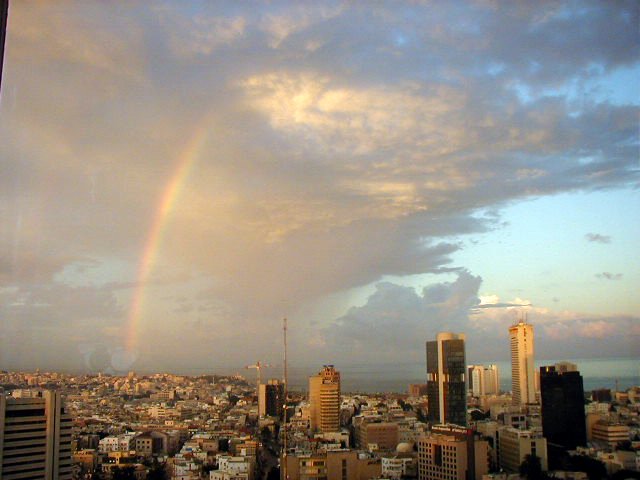
Facts about Tel Aviv
- Tel Aviv is known as the "White City" due to its large collection of Bauhaus and International style architecture. In 2003, the city was recognized by UNESCO as a World Heritage Site for its unique urban landscape.
- Tel Aviv was founded in 1909 as a suburb of the ancient port city of Jaffa. Today, the two cities have merged to form one metropolitan area, known as Tel Aviv-Yafo.
- Tel Aviv is often called the "city that never sleeps" due to its vibrant nightlife. The city has a wide variety of bars, clubs, and restaurants, and many stay open until the early hours of the morning.
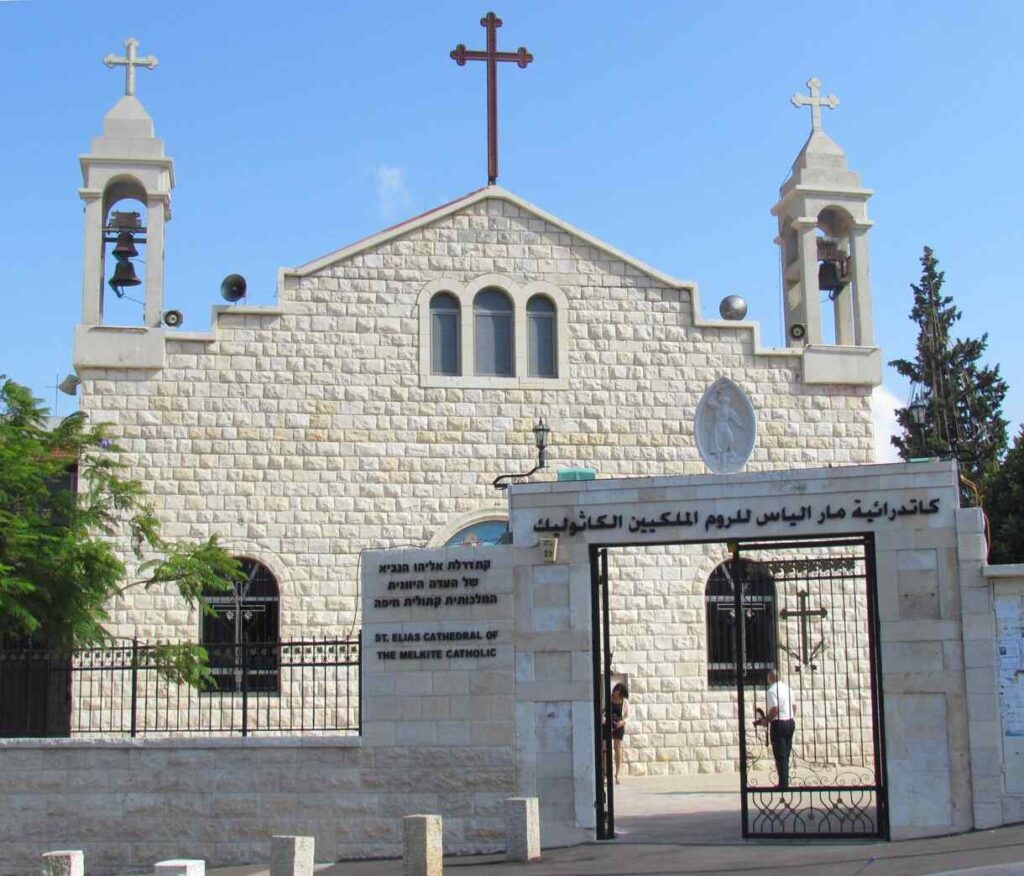
Facts about Israeli Christians
- Christianity has a long history in Israel, dating back to the time of Jesus and the Apostles. Today, there are around 177,000 Christians living in Israel, making up about 2% of the population.
- The majority of Christians in Israel are Arab, with the largest denominations being Greek Orthodox, Roman Catholic, and Greek Catholic. There are also smaller communities of Armenian Orthodox, Ethiopian Orthodox, and Protestant Christians.
- Despite being a minority group, Christians in Israel are well-represented in politics, business, and other areas of public life. For example, several members of the Knesset, Israel's parliament, are Christian.
- The Church of the Nativity in Bethlehem, which is believed to be the birthplace of Jesus, is one of the oldest churches in the world, dating back to the 4th century.
- In 2019, a group of Christian and Jewish volunteers joined forces to clean up a park in Haifa that had been neglected for years. The volunteers spent hours picking up trash and planting flowers, and said they hoped their work would help bring people together and promote unity.
- In 2020, an Israeli Arab Christian nurse named Christina Levy was featured in a viral video in which she sang a song of hope and healing during the COVID-19 pandemic. The video, which was widely shared on social media, brought comfort and inspiration to people across the country.
- A group of Israeli Christians from Nazareth built a snowman in the middle of a shopping mall in 2015, despite the fact that it rarely snows in the city. The snowman quickly became a hit with shoppers, and the group said they hoped it would bring joy to everyone who saw it.
- In 2019, Jewish doctor Dr. Ofer Merin performed a life-saving heart surgery on a Christian baby at the Sheba Medical Center in Israel. The baby's parents expressed their gratitude to Dr. Merin and praised him for his compassion and expertise.
- In 2015, Jewish volunteer Tomer Klein came to the aid of an Arab-Christian farmer in Nazareth whose olive trees had been destroyed by vandals. Tomer helped the farmer replant his trees and worked tirelessly to ensure that the farmer's livelihood was restored.
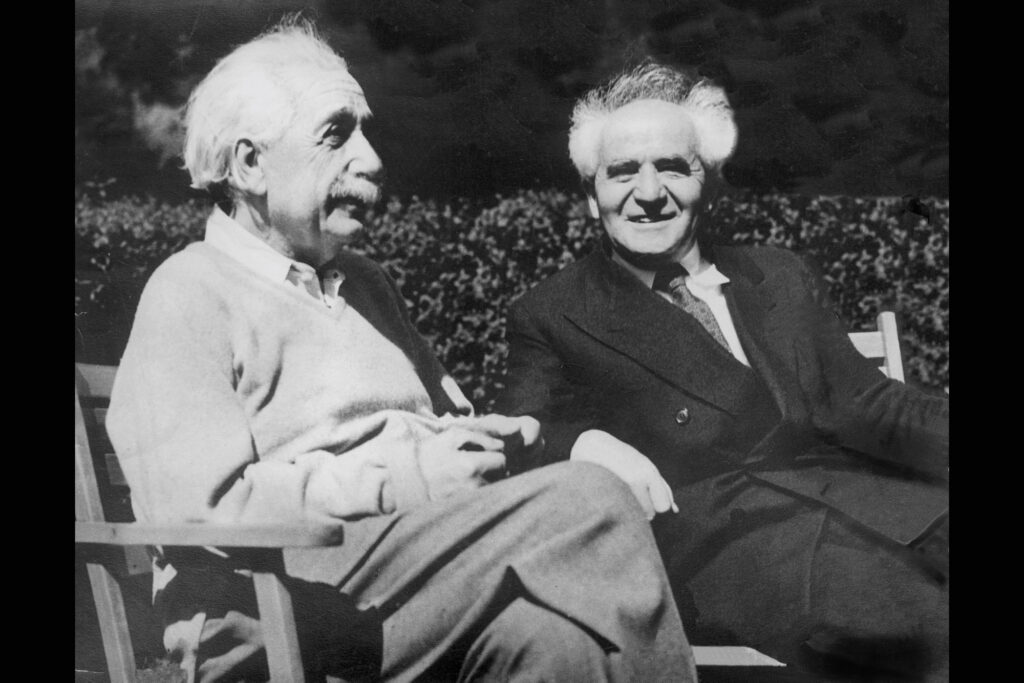
Funny quips from Israeli Prime Ministers
- Former Prime Minister David Ben-Gurion (pictured with Albert Einstein) was known for his love of reading, and reportedly had a bookshelf in every room of his house. When asked how many books he had, he replied, "Too few."
- Former Prime Minister Ehud Barak was a highly decorated soldier who participated in numerous commando operations. He once said, "The only thing I'm afraid of is boredom."
- Former Prime Minister Ariel Sharon was known for his love of food and was once asked if he was on a diet. His response: "I am on a seafood diet. I see food and I eat it."
- Former Prime Minister Benjamin Netanyahu once quipped, "I'm the only prime minister in Israeli history who can do a double backflip in a suit."
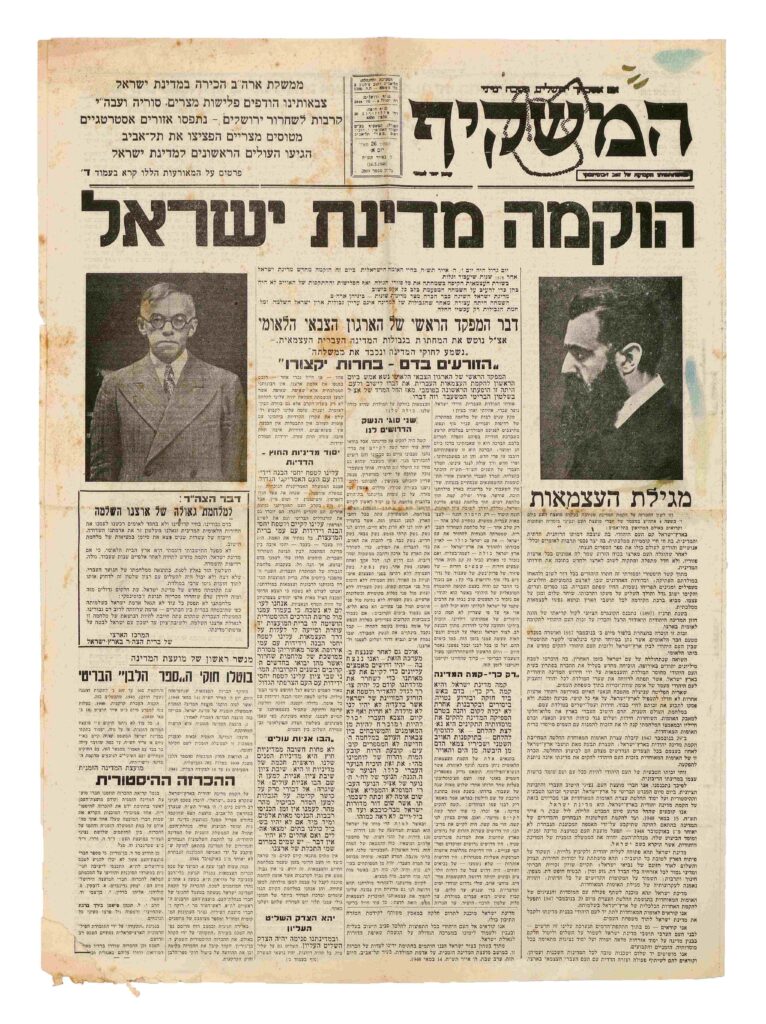
Funny Israeli Headlines
- "Israeli Dogs Declare Independence, Refuse to Sit and Stay"
- "Jerusalem Museum Displays World's Largest Collection of Broken Cellphone Screens"
- "Tel Aviv Municipality Offers Free Counseling for Drivers Traumatized by Potholes"
- "Scientists Confirm That Israeli Mothers Have Supernatural Ability to Smell Their Children's Lies"
- "Experts Confirm That Israeli Grandmothers' Cooking Is More Powerful Than Any Medicine"
- "Local Man Spends Entire Day Explaining to Mother Why He Can't Come Over for Shabbat Dinner"
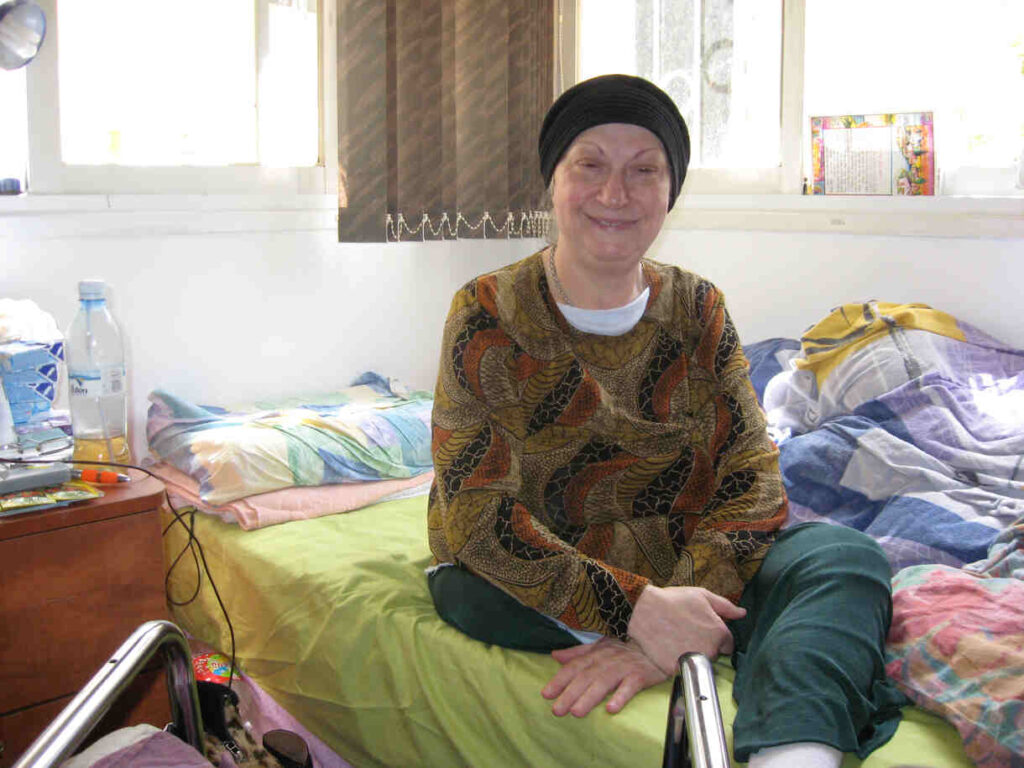
How Everyday Israelis help those around them
- In 2017, the Israeli NGO "Save a Child's Heart" performed its 5,000th life-saving heart surgery on a child from Tanzania. The organization provides free cardiac surgery and medical treatment to children from developing countries, regardless of their religion or nationality. Since its founding in 1995, the organization has saved the lives of thousands of children from around the world.
- In 2021, Israeli medical researchers at the Hebrew University of Jerusalem developed a treatment for ALS, a debilitating neurological disease. The treatment targets a specific protein that causes nerve cell damage and has been shown to significantly slow the progression of the disease.
- In 2020, during the COVID-19 pandemic, the Israeli city of Haifa implemented a program to support local businesses by offering them free rent for six months. This program helped many small businesses survive the economic impact of the pandemic.
- In 2019, a group of Israeli volunteers cleaned up the beaches in the Red Sea town of Eilat, removing more than 200 tons of waste. The volunteers included local residents, tourists, and schoolchildren, who worked together to make the beaches cleaner and more beautiful for everyone to enjoy.
- In 2018, a group of Israeli researchers discovered a new treatment for pancreatic cancer. The treatment involves a combination of chemotherapy and a drug that targets the cells that are responsible for the cancer's spread. In clinical trials, the treatment has been shown to significantly improve survival rates for patients with advanced pancreatic cancer.
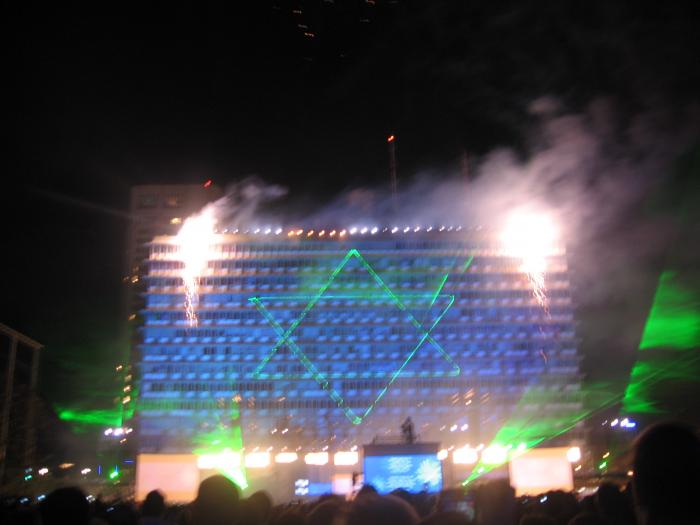
Stories about the Independence Day Celebrations
- Independence Day: Israeli Independence Day, also known as Yom Ha'atzmaut, celebrates the establishment of the State of Israel in 1948. Israelis celebrate this holiday with parades, fireworks, and other festive events.
- One year, a group of teenagers from the town of Be'er Sheva decided to celebrate Independence Day in a unique way: by creating a human Israeli flag. They recruited 3,000 participants, who wore red, white, and blue T-shirts to create the flag. The event was covered by news outlets around the world and became a symbol of Israel's unity and patriotism.
- In 1968, Israel celebrated its 20th Independence Day. To mark the occasion, the Israeli Air Force staged a surprise flyover of the Knesset building in Jerusalem, causing a commotion among the members of parliament. The flyover was a tribute to the air force's role in defending the country during the War of Independence.
- In 1959, a group of Israeli soldiers stationed in the Sinai desert decided to celebrate Independence Day by hosting a barbecue. They had no grill, so they improvised by digging a pit in the sand and using an old fuel tank as a cooking surface. The makeshift barbecue was a success, and the soldiers continued the tradition for many years.
- In 2018, Israel celebrated its 70th Independence Day with a special ceremony at Mount Herzl in Jerusalem. One of the highlights of the event was a performance by Netta Barzilai, who went on to win the Eurovision Song Contest later that month. Barzilai's upbeat and colorful performance was a fitting tribute to Israel's spirit of creativity and innovation.
- In 2008, a group of Israeli paratroopers who had fought in the 1967 Six-Day War reunited to celebrate the 41st anniversary of Israel's Independence Day. The men, who had not seen each other in decades, shared stories of their experiences during the war and celebrated their reunion with a cake shaped like a parachute.

Israel: Not just a refuge for Jews
- In the late 1970s, after the end of the Vietnam War, many Vietnamese people fled their country by boat, seeking refuge in other countries. Israel was one of the few countries to accept Vietnamese refugees, and over 300 settled in the country. Many of them went on to become successful business owners and community leaders.
- Since the outbreak of the Syrian civil war in 2011, millions of Syrians have been displaced from their homes. Israel has provided humanitarian aid to Syrian refugees and has treated wounded Syrians in its hospitals. In addition, a small number of Syrian refugees have been given permission to enter Israel for medical treatment or to reunite with family members.
- The Gurkhas are a group of Nepalese soldiers who have served in the British army for centuries. In the early 2000s, Israel hired a group of retired Gurkhas to serve as security guards at its embassies around the world. Many of the Gurkhas settled in Israel and became permanent residents, bringing with them their unique culture and traditions.
- The Darfur region of Sudan has been plagued by violence and conflict for decades. In the early 2000s, Israel provided refuge to a group of Darfur refugees, who settled in the town of Arad. The refugees formed a tight-knit community and became known for their entrepreneurship and hard work.
- The Baha'i faith is a minority religion that originated in Iran. In the 1980s, the Iranian government began a campaign of persecution against Baha'is, and many were forced to flee the country. Israel provided refuge to a group of Baha'i refugees, who settled in the city of Haifa and established a vibrant community there.
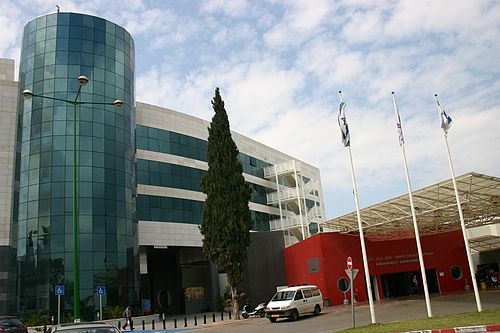
How Israel provides care for all
- In 2017, a Palestinian baby from Gaza was born with a life-threatening heart defect. The baby's parents were unable to find adequate medical care in Gaza and appealed to the Israeli government for help. Israel granted the baby and his family permission to enter Israel for medical treatment, and the baby underwent successful surgery at a hospital in Tel Aviv.
- In 2014, an eight-year-old Syrian boy named Ali was brought to Israel for medical treatment. Ali had been severely injured in a bombing in Syria and required extensive surgery. Israel granted Ali and his family permission to enter the country for medical treatment, and Ali received lifesaving surgery at a hospital in Haifa.
- In 2016, a six-year-old Iraqi girl named Aya was flown to Israel for medical treatment. Aya had been diagnosed with a rare and potentially fatal condition, and her family was unable to find adequate medical care in Iraq. Israel granted Aya and her family permission to enter the country for treatment, and Aya underwent successful surgery at a hospital in Tel Aviv.
- In 2019, a two-year-old Palestinian boy named Ahmed was brought to Israel for medical treatment. Ahmed had been born with a rare and complex heart defect, and his family was unable to find adequate medical care in the Palestinian territories. Israel granted Ahmed and his family permission to enter the country for treatment, and Ahmed underwent a successful surgery at a hospital in Tel Aviv.
- In 2015, a Syrian refugee named Mohammed was flown to Israel for medical treatment. Mohammed had been severely injured in a bombing in Syria and required extensive surgery. Israel granted Mohammed and his family permission to enter the country for medical treatment, and he received lifesaving surgery at a hospital in Jerusalem.

Israel's delicious food culture
- Israel is home to the world's only underwater restaurant, the Red Sea Star.
- The cherry tomato was developed in Israel in the 1970s.
- Israel has more vegans per capita than any other country in the world.
- In Israel, it is common to bring your own food to restaurants and cafes, especially in outdoor spaces or at the beach. This is known as "mangal," and it typically involves grilling meat and vegetables over an open flame.
- Israeli street food vendors are known for their quick wit and humor. They often engage in friendly banter with customers and passersby, making jokes and puns related to their food or the situation.
- Hummus is a point of national pride in Israel, and there is much debate and competition over who makes the best hummus. There are even annual hummus-making competitions and festivals held throughout the country.
- Israeli chefs are known for their innovative and experimental approach to cuisine. Many restaurants offer unique and unexpected flavor combinations, using locally-sourced ingredients and fresh herbs and spices.

Facts about Israeli Athletes
- Israeli Olympic swimmer, Yakov Toumarkin, (pictured) once forgot his passport while traveling to a competition and had to swim back to shore to retrieve it. He later joked that it was the longest warm-up of his life.
- Israeli Olympic swimmer, Gal Nevo, once swam with a broken arm during a qualifying heat for the 2008 Beijing Olympics. He later revealed that he had broken his arm while doing a cannonball into a pool during a training session.
- Israeli basketball player, Omri Casspi, once gave his teammates personalized bottles of Israeli-made olive oil as a gift. He later joked that he was trying to help them improve their cooking skills.
- Israeli basketball player, Gal Mekel, once played an entire game with a piece of hummus stuck in his beard. He later tweeted a photo of the hummus, saying "I guess that's what happens when you eat hummus before the game."
- Israeli basketball player Omri Casspi, who played for the NBA's Sacramento Kings in 2015, once revealed in an interview that he enjoyed eating hummus as a pre-game meal. His love for the traditional Israeli dip became a running joke among Kings fans and even inspired a local restaurant to name a hummus dish after him.
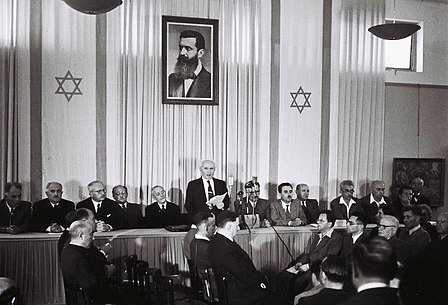
Signs Israel has a bright future
- Israel has a world-renowned healthcare system, with cutting-edge technologies and highly trained medical professionals. This ensures that the country's citizens have access to some of the best healthcare in the world, which will be key to their continued well-being and productivity.
- Israel has made significant strides in environmental stewardship, with a range of initiatives aimed at promoting sustainability and protecting the country's natural resources. This commitment to environmentalism bodes well for the country's future ecological health and well-being.
- Israel has faced numerous challenges and threats throughout its history, including wars, terrorism, and economic crises. Despite these challenges, the country has consistently demonstrated resilience and an unwavering commitment to its values and ideals.
- Israel is a diverse and vibrant society, with a rich cultural heritage that spans thousands of years. This cultural richness provides a strong foundation for the country's continued success and resilience.
- Israel has a young and growing population, with a high birth rate and a large number of immigrants from around the world. This demographic strength bodes well for the country's future vitality and productivity.

Our prayers and support, Israel, our friend and ally. Happy 75th Anniversary..